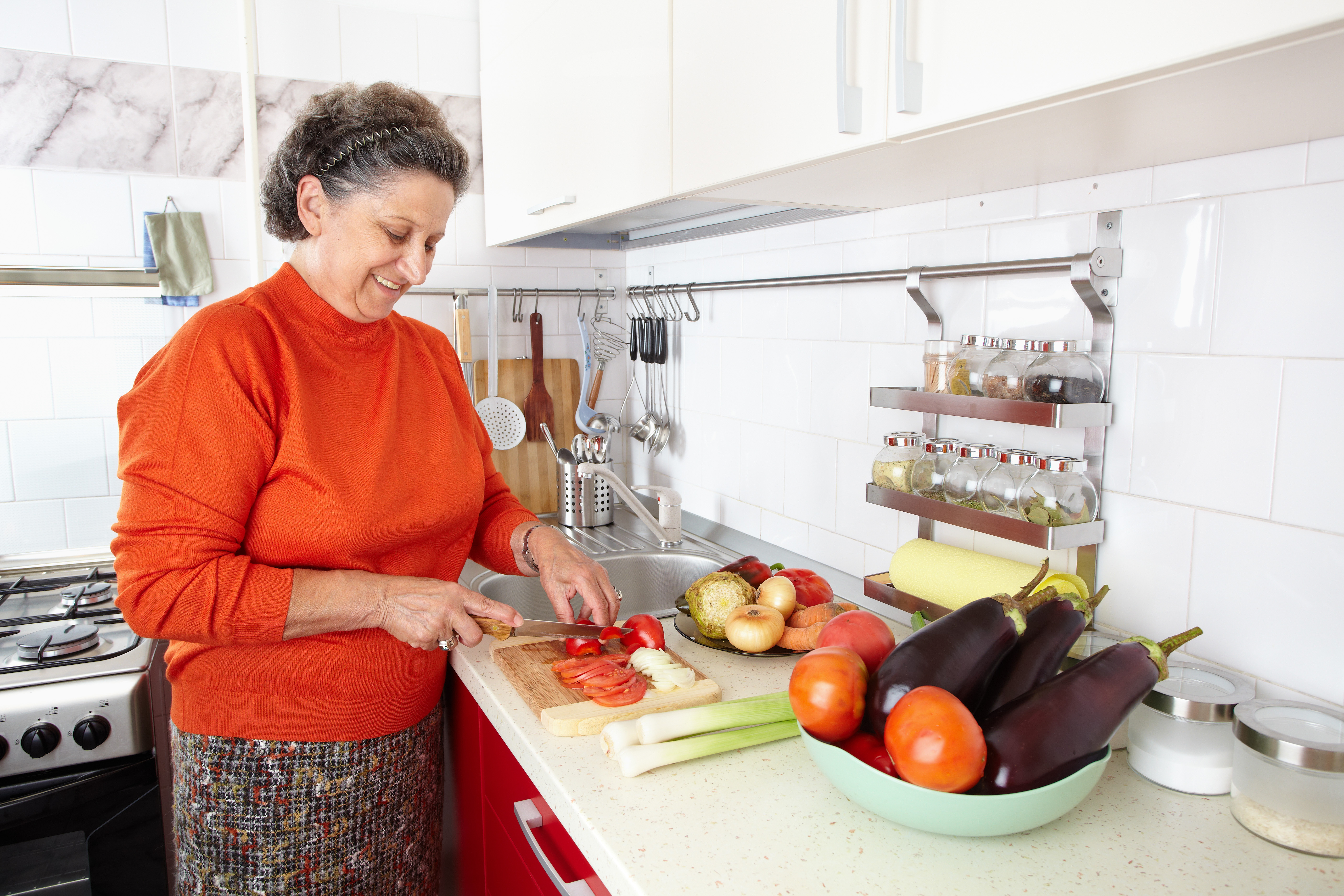What’s Cooking: Cooking And Eating Now For Older Adults
June 3, 2020

The current climate has caused many of us to reconsider our relationship with food: what we eat, how we prepare it, and how we secure it, among other facets. Given the closure of restaurants, the risks of entering grocery stores, and the limitations of available options, we’ve had to really think hard about what we can buy and what we can eat. And whether or not we like it, we’ve been forced to reacquaint ourselves with home cooking. There are plenty of resources out there to help you become a kitchen wizard, and if anything, the pandemic has caused many of us to seek out more recipes and resources to help us channel our inner Ina Garten. For some additional sources of cooking magic, put on your apron and click here.
The good news is that a brand new survey from the National Poll On Healthy Aging shows that older adults, by and large, are happy being in the kitchen and believe they eat healthier as a result. While the survey was taken prior to the current pandemic, the results give us reason to be hopeful that some of the new ways we’ve had to adjust to eating coincide with what already works for older individuals. For example, the survey reports that about 50% of adults ages 50-80 eat at home, with a home-cooked meal, 6-7 nights a week, and 42% report the same for 3-5 nights a week. 71% of older adults reported that they enjoy cooking and the more cooking that was done at home, the healthier their reported diets. Interestingly, however, the survey reported that only 5% of older adults were previously getting groceries through online ordering systems. My, have times changed. For an updated list of some online grocery-ordering options, take a look at this Senior Planet post here.
We’ve also been forced to consider whether and how our eating affects our health, as most of us fall into a higher-risk group when it comes to infection rates for the coronavirus. While food choices can’t magically mend your lagging immune system, there is some likelihood that better food choices, over the long term, can work to strengthen it. A recent article in Consumer Reports underscores the importance of a nutrient-rich diet for older adults and provides a wide variety of suggested recommendations for filling your pantry and stomach.
Finally, when it comes to food recommendations for healthier living and aging, perhaps the most interesting and persistent advice comes with a caveat: rather than specific types of food, more and more research points to limiting your food intake and cutting your calories. For example, the BBC recently posted a long read addressing the growing body of research that supports calorie restriction as a way to improve health and extend your healthspan. And if you worry that cutting calories will leave you hungry (perhaps you’ve grown too comfy with snacking during the pandemic?), quell your fears by clicking here and reading this recent piece in Medium about cutting calories while feeling full.







